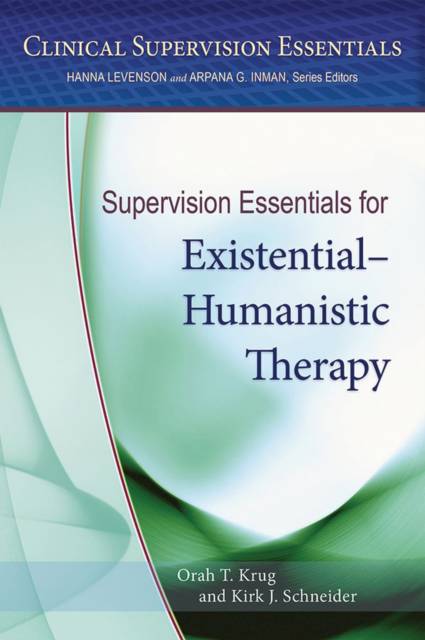
- Retrait gratuit dans votre magasin Club
- 7.000.000 titres dans notre catalogue
- Payer en toute sécurité
- Toujours un magasin près de chez vous
- Retrait gratuit dans votre magasin Club
- 7.000.000 titres dans notre catalogue
- Payer en toute sécurité
- Toujours un magasin près de chez vous
52,95 €
+ 105 points
Description
This concise guide applies the principles of Existential-Humanistic therapy to the practice of clinical supervision. With the skillful use of case examples--including transcripts and analyses of real sessions with a real clinical trainee--the authors utilize the key ingredients of the E-H therapeutic approach, including empathy, acceptance, and genuineness, to model how trainees can create safe, collaborative, and supportive relationships with clients. E-H supervisors help trainees learn to enter their clients' self-constructed worlds, using their own personal contexts to develop responsiveness to clients, while also cultivating the "presence" that enables genuine encounters and real therapeutic change.
Spécifications
Parties prenantes
- Auteur(s) :
- Editeur:
Contenu
- Nombre de pages :
- 184
- Langue:
- Anglais
- Collection :
Caractéristiques
- EAN:
- 9781433822810
- Date de parution :
- 16-05-16
- Format:
- Livre broché
- Format numérique:
- Trade paperback (VS)
- Dimensions :
- 152 mm x 229 mm
- Poids :
- 226 g







